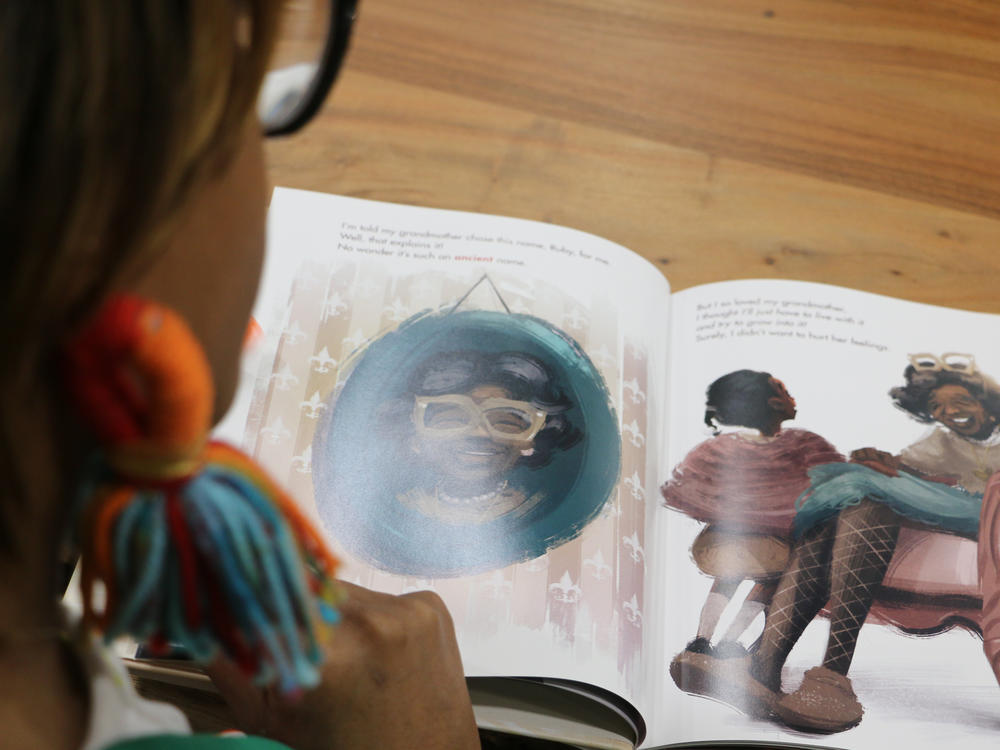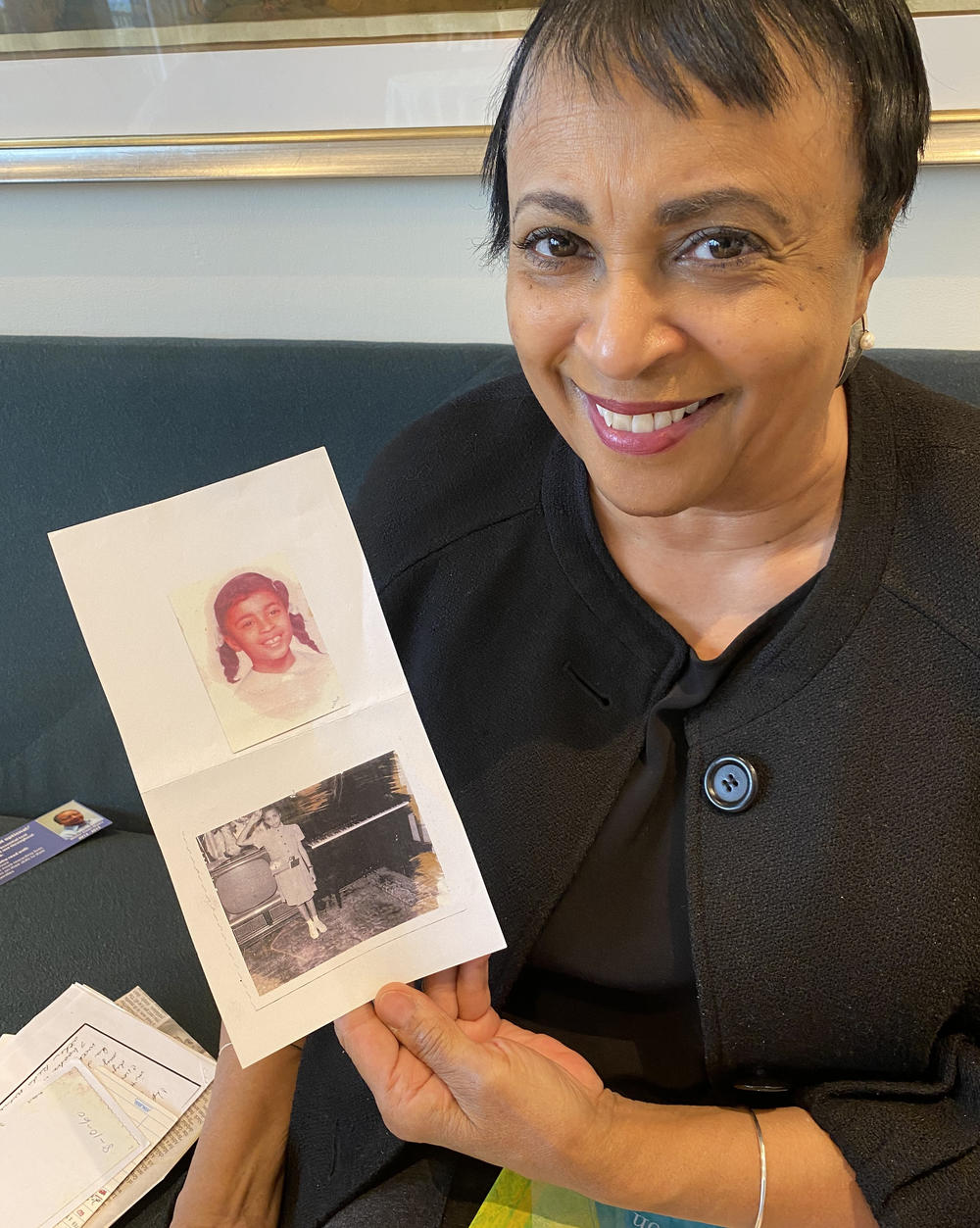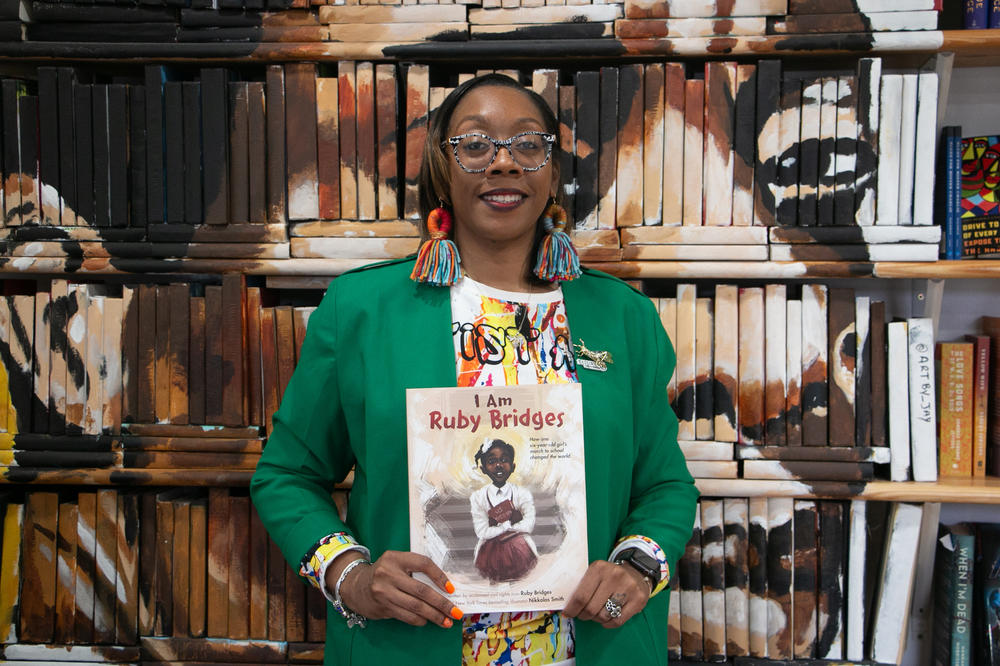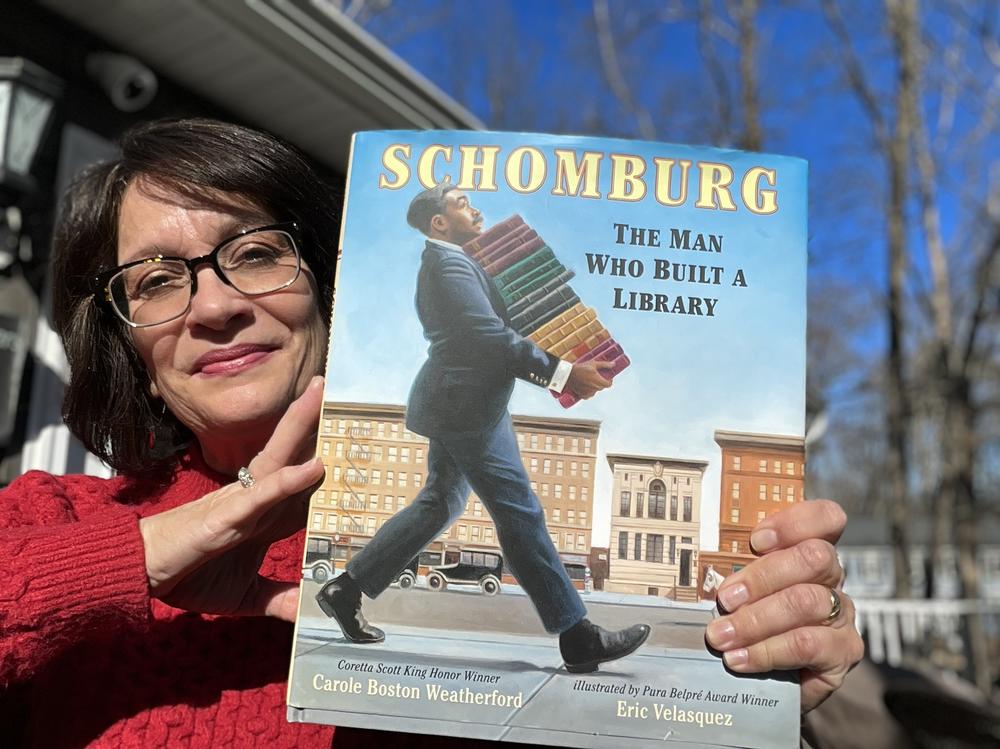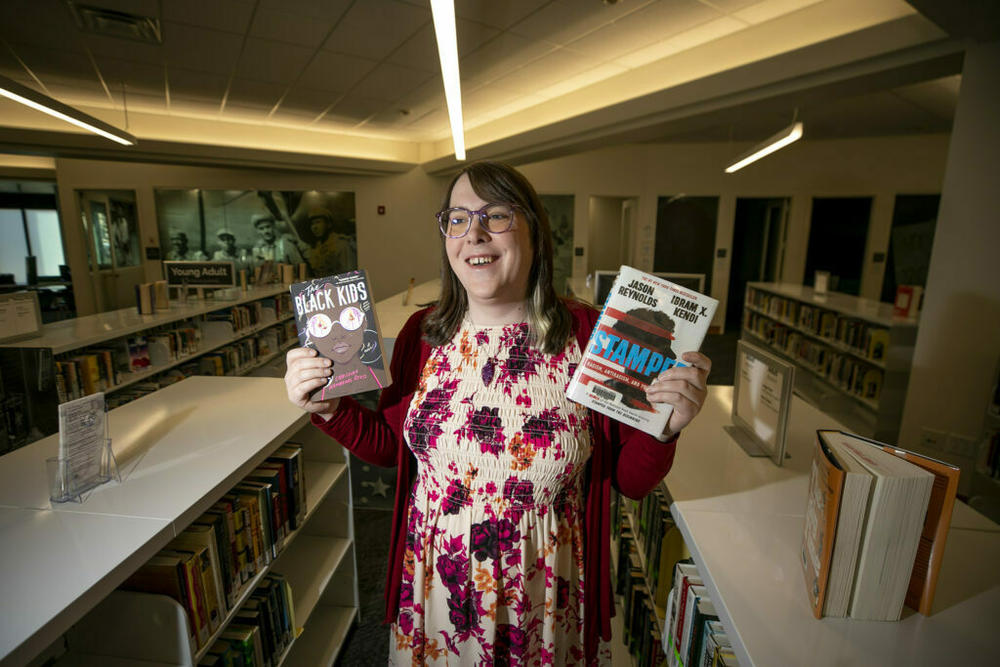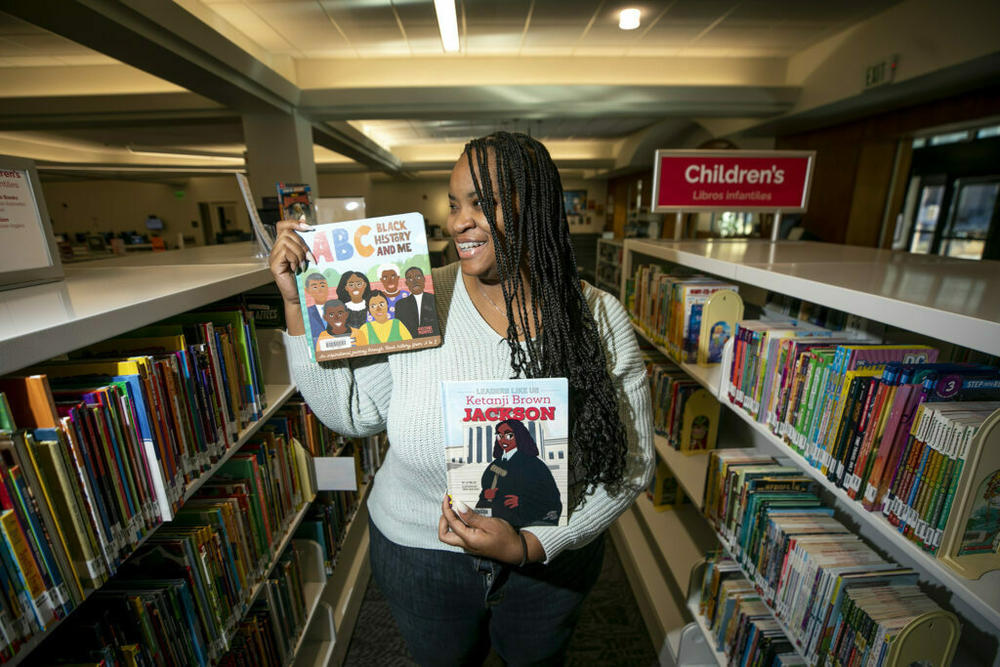Section Branding
Header Content
6 books to help young readers learn about Black history
Primary Content
Each February, the U.S. honors the contributions and sacrifices of African Americans who have shaped the nation. If you're struggling with the best way to educate children about Black history, this month or year-round, experts often suggest turning to literature to assist.
Books can help children engage with all kinds of history, but can be particularly helpful for the nuanced aspects of Black history, said Meg Medina, an award-winning children's author and the 2023-2024 National Ambassador of Young People's Literature.
"I think when we give kids really rich texts, and trust them with the information, trust them to be curious, allow them to follow their curiosity, we do them an enormous service," she said.
And 2024 is a wonderful time to find the best texts to do this, Medina said.
"I tell people we are in a golden age of children's books. So many incredible people are producing really meaningful work that respects kids intelligence, respects their curiosity," she said.
Here are six picks for Black History Month reading, recommended by authors, librarians and book shop employees, appropriate for a range of ages from toddlers to teens.
Librarian of Congress Carla Hayden recommends A Library and Bright April
As the Librarian of Congress, Carla Hayden oversees the national library of the United States, which contains a collection of approximately 164 million items. For Black History Month, she has two recommendations for children — firstly, A Library by Nikki Giovanni, with colorful illustrations by Erin K. Robinson.
"It's a book that I would recommend for anyone, and particularly though, in Black History Month because it features a young African American girl and she takes so many adventures through books. And to have a young African American child having those adventures in a library at this time is very significant when so many things are being challenged," Hayden said.
"Books can do so much. And during Black History Month, I think we owe it to the young people in our lives to introduce them to that free resource: The library," Hayden said. "I'm a little prejudiced."
She said A Library also reminded her of her second pick, a lifelong favorite book of hers, Bright April by Marguerite de Angeli.
The book, published in 1946, is about a young African American girl named April who experiences racial prejudice for the first time. The main character has pigtails and is a Brownie — a Girl Scout in the second or third grade of elementary school — which blew the mind of a young Hayden, who also was a Brownie with pigtails.
Bright April "even now makes me smile, because it was the first time I saw myself in a book," she said. "I thought that I was April."
She now owns a well-worn copy of the book, which serves as an important reminder: "It's important during African American History Month, too, that we present materials, especially for children, where they can have windows on the world, of course, but also mirrors and they see themselves."
Brittni Robertson Powell, a bookstore program director, recommends I Am Ruby Bridges
"I didn't know what being the first really meant until the day I arrived," Ruby Bridges writes in I Am Ruby Bridges, channeling the voice of her 6-year-old self.
Brittni Robertson Powell, program director for the New Orleans bookstore Baldwin & Co., said she picked the picture book to highlight her hometown's not-so-distant history.
"Ruby is younger than my mom," Robertson Powell said. "How is that possible?"
Robertson Powell said she and her 10-year-old son regularly drive past the New Orleans elementary school Bridges integrated in 1960 in the wake of Brown v. Board of Education.
"I told him, 'This is where it happened.' He cannot fathom that," she said.
They recently read Bridge's book together, and since then, he's been applying the story to his own life, she said. When someone didn't want to play with him recently, "He was like, 'I wonder if that's how Ruby felt?," she said.
Robertson Powell likes the lessons the book teaches — among them, to be confident, be kind and accept people who are different from you.
"I'm glad she's penned it because it's being told by her, as opposed to other individuals who want to tell her story," she said.
The importance of telling your own story, she said, is an important lesson for kids. too.
Meg Medina, children's book author, recommends Schomburg: The Man Who Built A Library
Picture books aren't just for little kids, said Meg Medina.
That's partially why she chose Carole Boston Weatherford's book Schomburg: The Man Who Built A Library.
"Even though it is a picture book, I think we should think about picture books as everybody books, especially a book like this," she said.
The book tells the story of Arturo Schomburg, a historian, writer, book collector and activist who lived during the Harlem Renaissance.
As a child, he asked a teacher why the class wasn't learning about the contributions of Black men and women to their country. The teacher told him that Black culture had nothing worthy to preserve.
"And that horrible statement stayed with him and fueled his lifelong passion for discovering, documenting and collecting proof and evidence of Black greatness across the globe," Medina said.
Schomburg's initial collection of around 5,000 items eventually led to the creation of the Schomburg Center for Research in Black Culture, a research library within the New York Public Library which now holds about 11 million items.
The book highlights some of the many people that Schomburg collected books and other items about, including Frederick Douglass and Phillis Wheatley, who is considered the first African-American author of a published book of poetry.
He was also from Puerto Rico, born of African and German descent, so the book highlights Afro-Latino history and identity as well.
"I love the idea of intersecting identities, which sometimes get cast aside when when we're forcing people to sort of think of their identity as one thing or another," Medina said.
Medina said the book is a springboard for learning about a man who wanted to discover the truth about his culture and its contributions. From there, the reader can learn about the many other people Schomburg highlights in his collection.
The depth of contributions of Black Americans to the country's history and greatness are vast, Medina said. "I think kids deserve to know those things and deserve to learn about it and at least have the information so that they themselves can become little Arturo Schomburgs."
Juno Kling, a Denver teen librarian, recommends The Black Kids
The Black Kids by Christina Hammonds Reed follows a Black teenager named Ashley, who attends a predominantly white high school in Los Angeles and has lived a fairly cushioned life. Then, her world is upended by the Rodney King riots, which broke out in 1992 after four L.A. policemen, three of whom were white, were acquitted for the brutal beating of King, a Black man. Afterwards, Ashley is left questioning her life, identity and her position in society.
"I feel like it's kind of an untold story because it talks about the intersection of race and class," said Juno Kling, a teen librarian at the Blair-Caldwell African American Research Library in Denver.
Kling said she recommends the book for teens ages 14 through 18, because it's easy for readers to relate to Ashley, since the book reads like a memoir or autobiography. While the King riots might be a heavy topic, Kling said reading about these issues through Ashley's eyes gives people a "safe way to interface with those difficult topics."
"These are lived experiences that teens have and they deserve to see themselves represented," Kling said. "For teens who don't share those identities, they deserve to know what their peers are going through and be able to have an understanding of that."
The book also touches on how teens inadvertently find themselves in the middle of political issues, Kling said.
"You might not set out to be an activist and be a voice but sometimes events happen in real life and you have to step up and talk about those things," Kling said. "That's one of my favorite things about working with teens is the way that they're starting to find those issues that are really key and important to them...That's the age where your identities start to get politicized and you have to react to that."
Jameka Lewis, a Denver library branch manager, recommends ABC Black History and Me
ABC Black History and Me by Queenbe Monyei is a classic ABC picture book, featuring Black historical figures for to each letter of the alphabet.
Jameka Lewis, the branch supervisor at the Blair-Caldwell African American Research Library, recommends the book for children under the age of 5, because it's geared toward learning the alphabet while also introducing young minds to key figures in history.
"I think it's really important that kids are able to kind of put a face with a name," she said.
It's also one of the few board books — tough enough to withstand a toddler's hands and mouth — that she's come across that feature Black characters, she said.
Lewis also loves the illustrations of the historical figures, because they show a wide variety of Black skin tones.
"This book does a really good job of just highlighting how diverse and how eclectic and how unique Black people are, in different industries and in different ways that we've made history," she said
Lewis said her favorite letter in the book is "P" for president, which features former President Barack Obama and current Vice President Kamala Harris.
Desiree Mathurin is a reporter with Denverite, part of Colorado Public Radio. Aubri Juhasz is an education reporter with WWNO in New Orleans. This story is part of NPR's collaborative initiative with member stations.
Copyright 2024 NPR. To see more, visit https://www.npr.org.
